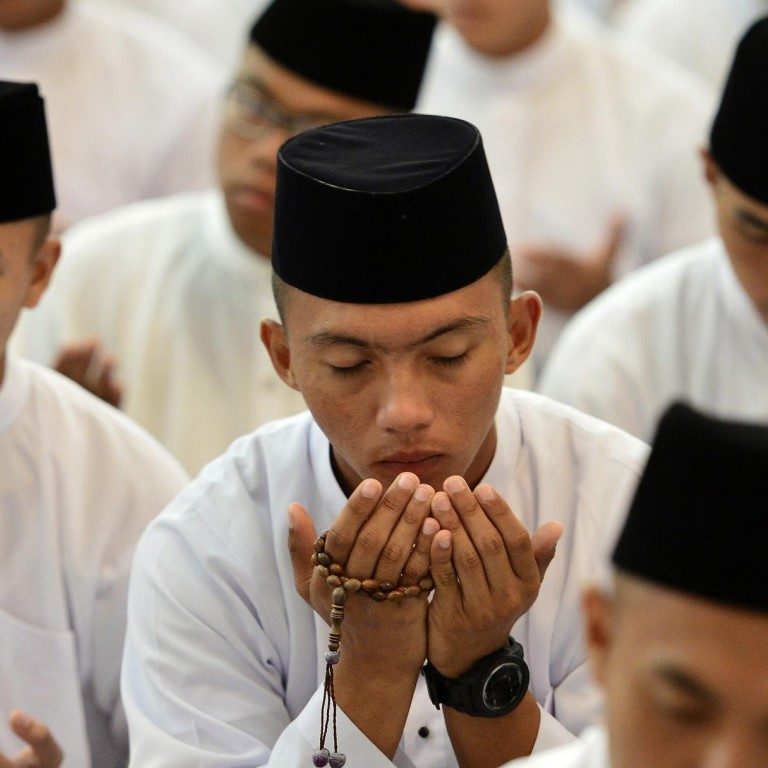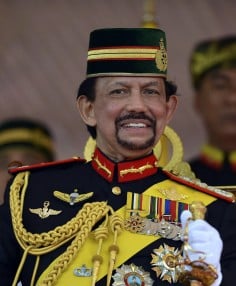
Sultan of Brunei imposes sharia law despite international condemnation
Absolute monarch ignores international critics and says Islamic code takes effect today, paving way for severing of limbs and death by stoning
The Sultan of oil-rich Brunei announced that tough Islamic criminal punishments would be introduced today, pushing ahead with plans that have sparked international condemnation and rare domestic criticism of the fabulously wealthy ruler.
"With faith and gratitude to Allah the almighty, I declare that tomorrow, Thursday May 1, 2014, will see the enforcement of sharia law phase one, to be followed by the other phases," the absolute monarch said in a royal decree yesterday.
It’s a return to medieval punishment … It’s a huge step back
Plans for the sharia penalties - which will eventually include flogging, severing of limbs and death by stoning - triggered condemnation on social media sites in the tiny, sleepy sultanate earlier this year.
Confusion has swirled around implementation following the unexplained postponement of an expected April 22 start date that raised questions over whether the Muslim monarch was hesitating.
But 67-year-old Sultan Hassanal Bolkiah - one of the world's wealthiest men - said in his decree that the move was "a must" under Islam, dismissing "never-ending theories" that sharia punishments were cruel in comments clearly aimed at detractors.
"Theory states that Allah's law is cruel and unfair but Allah himself has said that his law is indeed fair," he said.
The monarch's wealth - estimated three years ago at US$20 billion by magazine - has become legendary with reports of a vast collection of luxury vehicles and huge, gold-bedecked palaces.
The monarchy was deeply embarrassed by a sensational family feud between Hassanal and his younger brother Jefri Bolkiah over the latter's alleged embezzlement of US$15 billion during his tenure as finance minister in the 1990s.
Allegations of Jefri's un-Islamic lifestyle included a harem of Western lovers and a luxury yacht he owned called "Tits", with tender vessels called "Nipple 1" and "Nipple 2".
Bruneians enjoy among the highest standards of living in Asia due to the country's energy wealth, with education, medicine and other social services heavily subsidised.
The Sultan first proposed the sharia penal code in the 1990s, and in recent years has increasingly warned of rising crime and pernicious outside influences such as the internet. He has called Islam a "firewall" against globalisation.

Brunei is the first country in Southeast Asia to introduce a sharia penal code on a national level. It already practises a relatively conservative form of Islam compared to its Muslim-majority neighbours, banning the sale of alcohol and restricting other religions.
Muslim ethnic Malays, who make up about 70 per cent of the population, are broadly supportive of the move by their revered father figure. But some Malays and non-Muslim citizens privately express unease. About 15 per cent of Brunei's people are non-Muslim ethnic Chinese.
The move could indicate the sultan is becoming more conservative as he ages, said Joseph Chinyong Liow, a Singapore-based professor of Muslim politics.
The initial phase beginning today introduces fines or jail terms for offences ranging from indecent behaviour, failure to attend Friday prayers, and out-of-wedlock pregnancies.
A second phase covering crimes such as theft and robbery is to start later this year, involving more stringent penalties such as severing of limbs and flogging.
Late next year, punishments such as death by stoning for offences including sodomy and adultery will be introduced.
The UN's human rights office said this month it was "deeply concerned", adding that women typically bear the brunt of punishment for crimes involving sex.
"It's a return to medieval punishment," said Phil Robertson, deputy Asia director for Human Rights Watch.
"It's a huge step back for human rights in Brunei and totally out of step with the 21st century."
Officials have said judges will face extremely high burdens of proof, and would have wide discretion to avoid sharia punishments.

